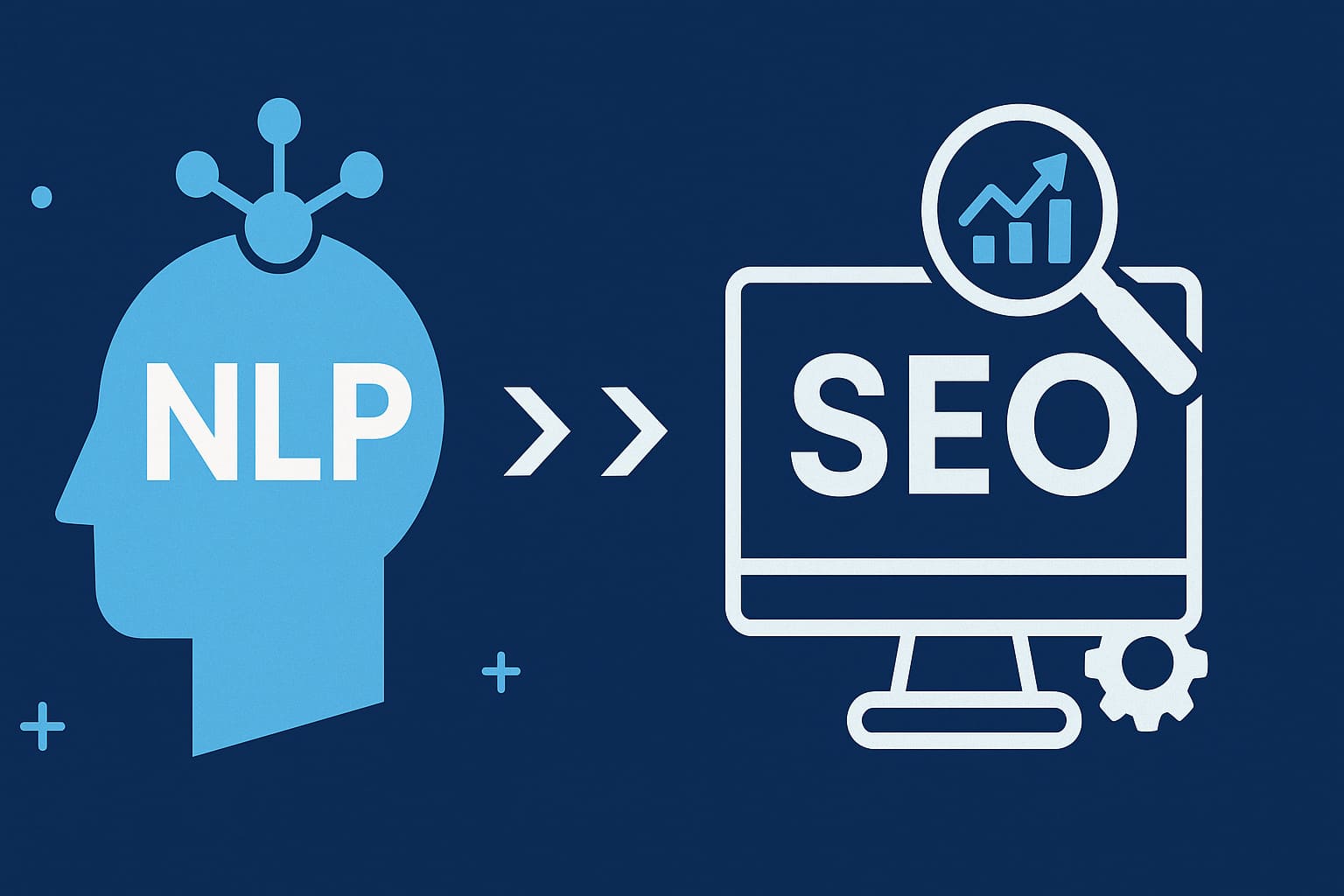Are you still struggling to boost your website’s search engine ranking? Still figuring out which on-page SEO element will make the biggest impact?
It makes a big difference to know which of the variables are most important in the highly complex area of SEO. Out of all the mentioned elements, one element is typical to improving your site ranking.
How about being able to know specifically which areas you should invest your time into to achieve the best results to your search engine index. By carefully and effectively optimizing this fundamental on-page factor, it is possible to increase the portion of organic traffic and overall effectiveness.
You can find out which of the on-page factors is a real workhorse of SEO and ways to fine-tune it in this article published at our blog.
Which page element carries the most weight for SEO?
The page title tag carries the most weight for on-page SEO elements. It is the first thing that search engines like Google and users see. A strong title tag should be unique and catch the user’s attention, encouraging them to click and visit your site.
Your title tag makes the first impression of your page. It appears in search engine results pages (SERPs), browser windows, and link previews on other platforms. Because it is so visible, it holds a lot of power in driving traffic to your website.
Among all the on-page SEO elements, the title tag is the most used and influential. To make the most of it, include your main keyword and make it engaging. This encourages more clicks and helps improve your ranking on search engines.
Optimizing your title tag is crucial for your website’s success. While it is very important, remember not to ignore the rest of your content. Good SEO involves looking at all parts of your page.
What is on-page optimization and its importance
On page optimization is the process of optimizing separate web pages of the website with an intention to enhance their link popularity and hence achieve good rankings in search engines. This includes the text of a page, the html source code of the web page and assessing if they contain proper structure and appropriate keywords.
Key elements of on page optimization:
- Title Tags: The primary title that shows up on SERP and browser tabs. It should however be short, contain information relevant to the site and incorporate the main keywords.
- Meta Descriptions: Meta descriptions which are brief descriptions located under the title tag line seen in the search result pages, that give the user a brief information about the page.
- Headings (H1, H2, etc. ): Well formatted and properly tagged headings of the content that also help the search engines to effectively crawl for main subjects.
- Content Quality:Useful and valuable content for recipients with the use of the target keywords integrated in the text.
- URL Structure:URLs must be clean and should contain keywords matching the content of the page neatly.
- Internal Linking:Those internal connections between different content matter on the given site that assist the search engines to access the site as well as sharing link equity.
- Alt Text for Images: It is the text that is inserted into the images and which makes the content of the images more understandable for a search, which increases accessibility.
- Mobile Friendliness: Making sure that it is easy to navigate through the website especially when viewed on a mobile device.
- Page Load Speed: Reloading takes much time and is not comfortable for a user, but it is considered to be a benefit from the search engines point of view.
Importance of On-Page Optimization:
- Improved Search Engine Rankings: Extreme pay attention is paid to the internal optimization procedures that assist the search engines to crawl as well as index your site’s content to its best Search Engine Results Page ranking.
- Increased Organic Traffic: Higher ranks mean more traffic and that leads to more clicks, and therefore more traffic to your website naturally.
- Better User Experience: Proper optimized pages take less time to load, are more informative and so enhances the quality of the site and users tend to spend quality time and hence less bounce rates.
- Higher Conversion Rates: Proper compelling and well-formatted content mean that there will be increased conversion rates because the users are able to easily get what they are searching for.
- Enhanced Accessibility: The use of alt text and other related items will make sure that everybody, including those with disabilities, will be able to read the content of the intended material.
- Competitive Advantage: It is a fact that by applying the right on-page optimization tactics you can have competitive advantage over rivals who do not apply the techniques as efficiently as you do.

Key element for the SEO optimization
When it comes to improving your search engine rankings, there’s one area of on-page optimization that can be your secret weapon. Title tag is one of the most important on page SEO factors through which you can boost your site in search engine results. This feature is sometimes ignored or not paid much attention to, yet when well developed, it will greatly increase the flow of traffic to your site.This is the initial impression that both the search engines and the users have on your page and thus, an optimized title tag can tip the scale between high traffic and no traffic at all.
Definition and Purpose of Title Tags
Title Tag is a HTML element that specifies the webpage title. The title tag appears on the search engine result pages (SERPs) as the headline for the result displayed on the browser tab.
It is a crucial SEO element that helps search engines to influence click-through rates (CTR) and also helps to understand the content of the page.
Title tags are main components of on-site SEO since they perform several beneficial tasks that influence rankings and usability. Title tags are essential for capturing user attention to provide a brief description of what the page contains, thus raising the CTR values. Thus, it is critical to learn the role and significance of title tags in enhancing the usability and search engine index of your site. Purpose of title tags are mentioned below:
- SEO Impact: Meta title tags are very important in SEO techniques since it makes it easy for the search engines to identify the content of the page and how relevant it is. Title tags are used when trying to make other small changes and improvements to increase a website’s search positions.
- User Experience: Before clicking the links that appear in the list of search results, users often get a brief idea of the page’s content from them.
- Social Sharing: When the page is linked to the social networks, the title tag becomes the default headline that makes the page even more popular and attractive for sharing.
Why Title Tags Carry Significant Weight for On-Page SEO?
Title tags remain one of the most important components of on-site and on-page optimization because of their direct effects on the behavior of search engines and users to the web pages. It is crucial to oversee the use of title tags to fully optimize them as components that will improve site speed and increase traffic. Significance of title tags for on-page SEO are:
- Search Engine Understanding: Meta tags particularly title tags enable the search engines to identify the overall theme of a particular page hence facilitating proper indexing by the search engines in the correct category.The use of primary keywords in the title tag relays to the search engines the type of the page hence enabling the search engines to use the information to enable the ranking of the particular page to these keywords.
- User Click-Through Rates (CTR): The title tag can be considered as the text that may be read by a user at the time he/she is making a decision to visit your site.When correctly writing the title tags, there can be a considerable improvement of the click through rates that in turn can make more people visit the respective site.
- User Experience:The use of title tags should guide the user to a correct expectation of what to expect in that given site leading to more satisfied users and consequently less bouncing.
- Social Sharing: An interesting consequence is that the title tags are generally used by social networking sites for headlines, each time the pages with content are posted, and therefore the definition of content appeal and visibility.
- Ranking Factor: The submitted title tags are viewed as one of the most important on-site SEO elements for the given search engines like Google.
Strategies to Optimize Title Tags for Better SEO Ranking
Importance of including Target Keywords in Title Tags:
Using target keywords in title tags can also be very important especially for one to gain good ranking in the search engines. This practice also increases the ranking of your page to the search intent and hence increases chances of users clicking through in order to find the specific information they are looking for.
- Improved Rankings: Its significance to the search engine, achieving a better ranking for those signals and related keywords.
- Higher CTR: Provides more clicks, or in other words, better visibility when it comes to search engine results and matching the user’s query.
- Better User Experience: It lays down standards which means it has low bounce rates and higher users’ satisfaction level.
Best Practices
It is slightly complex to implement target keywords into the title description because it significantly impacts the SEO of your page. Following measures are indicative in ensuring that the produced contents are relevant to the searches made by users and as well assist in rate the performance of the sites.
- Primary Keywords First: Place important keywords at the beginning.
- Concise and Descriptive: Keep it below 50- 60 characters and the content should impute what it is about.
- Natural Integration: Do not use keywords dense content, for readability.
- Unique Titles: Make sure that each page of the web site has a keyworded title tag.
Crafting Compelling and Click-Worthy Titles
Developing high-quality and engaging post headlines is the key since the title is the first element that users encounter in their search. Having a proper title also contributes not only to your page ranking in the search engine results list but also to the attractiveness of the content for the audience.
- Use Power Words: Some prompting words include using action words/verbs, using emotionally persuading words such as: “Unlock,” “Amazing,” or “Proven. ”
- Include Keywords: It is best to incorporate the primary keywords for SEO purposes naturally and relevance.
- Keep it Concise: To increase the chance of its view in the search results, try to keep the title to 50 to 60 characters.
- Be Specific and Relevant: Successfully describe content so that expectations are properly set and beneficial aspects showcased.
- Ask Questions: Self-promotional statements such as; “So you wish to improve your search engine rankings?”
- Use Numbers and Lists: Use numbers for the tidiness for the text, for instance, “10 Ways How To. . . ”
- Create Urgency: Use such words that make it appear that the offer is limited or is available only for today or now.
Ensuring Title Tags are Unique and Relevant
It is crucial to guarantee that title tags are distinctive and appropriate for further SEO and constituents’ interaction.Through creating right and relevant title tags, it increases the search engine indexing, improves the click through rate, and users as well receive relevant traffic hence improvement of traffic on the site.
- Unique Titles: It means that every page should have its unique title tag because it is confusing for a user to see the similar title tags of two different web pages in a search engine.
- Relevant Keywords: Use primary keywords as specific and integral components of the title so that this piece reflects the content of the particular webpage and complies with users’ expectations.
- Keep it Concise: It is recommended to keep the length of a meta description to 50-60 characters so that its full content will be displayed in the search results.
- Clear and Specific: Always ensure that the title of the page contains an accurate description of what the page contains and that readers are given a reason to click.

Best Practices for Title Tags to Improve SEO
Corresponding to the Industry standards—like the use of the keywords related to the page content, the brevity of the title, and the non-identity of the URL, you can enhance the ranking of the page and the rates of its hits. A helpful title tag is also helpful for the crawler to index the page and for users to click through the link because it performs the primary function of stating the value proposition of your page.
Length and Format Recommendations for Title Tags
Title tag length and structure are incredibly critical aspects of SEO and factors that influence users’ interactions with websites. It leads to the principle that practical recommendations guarantee that all titles are fully shown in the search and reflect the page’s content.
- Optimal Length: Title tags should also be kept at 50-60 character length to make sure they can fully appear in the search engine results.
- Include Primary Keywords: For better SEO impact, try to place the important keywords in the beginning..
- Clear and Descriptive: Ensure that the title given for the page describes the content posted on the page clearly.
- Avoid Keyword Stuffing: Integrate keywords in such ways that it increases the readability and relevance of the content.
- Branding: Include your brand name at the end of your text separated by a delimiter,[Common delimiters are commas (,), semicolon (;), quotes ( “, ‘ )].
Using Title Tags to Enhance Website Crawlability and Indexing
Title tags are quite important when it comes to making your site more accessible to the search engine crawlers for indexing. Title tags, if optimized correctly, assist a search engine to crawl through your content easier and thereby increasing its visibility in the search.
- Include Keywords: Keywords should be placed in title tags to assist the search engines in responding to them properly about the content on the page.
- Be Descriptive: Ensure that the title tags describe the topic effectively to improve indexing.
- Use Unique Titles: Make sure that there is no duplicate title tag on each of the pages and this is a good practice to increase crawlability.
- Keep it Concise: The ideal text length is 50-60 characters to maintain the clarity and also fully visible on the search engine.
- Add Value: To increase the relevance and ranks, it is necessary to place key information, for example, location or product name.
Title Tags Optimization for Mobile and Voice Search
Title tag improvement specifically for mobile and voice search can help in covering the audience depending on their devices or ways of using search. High-quality titles make sure that web pages get the visibility and attraction not only in mobile search but also in voice search, which in turn increases the level of engagement for the users.
- Concise Length: Do not exceed 50-60 characters in title tags so they can be fully visible on the screens of mobile.
- Natural Language: Use conversational language to align with voice search queries.
- Question Format: Make sure to ask questions, for instance, “How to. .. ” because that will replicate the voice search.
- Relevant Keywords: Sustainably include the keywords to increase the site’s relevance for SEO and for voice assistant usage.
- Clear and Direct: The placement of title tags should reflect what is in the corresponding pages and be capable of answering user’s queries.
Conclusion
In conclusion,the title tags play a major role in the overall performance of a site in terms of its SEO as well as carries the most weight in SEO. These provide an introduction for search engines regarding the content relevance of the search queries; making them a first impression interface for search engine result pages.
Although other on-page factors like headings, meta descriptions, and content relevance are pivotal to the process, this title tag is deemed most influential because of its immediate relation to both search engine positions and users.
Thus, improvement of the skills of creating effective title tags should be considered as one of the top goals for every digital marketer or website owner with the need to work on SEO promotion and attract more visitors. By ensuring the points discussed are observed appropriately, there will be improved visibility of the website and its relevance in the search engines.






